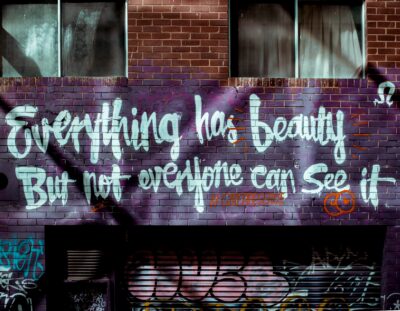 The day before I turned 55 I received a notice from my bank. The auxiliary checking account I’d opened for online transactions would shortly be assessed an $8 monthly fee unless I a) maintained a $1000 minimum balance, b) deposited $250/month, or c) used my ATM card at least ten times per month, none of which was feasible for me.
The day before I turned 55 I received a notice from my bank. The auxiliary checking account I’d opened for online transactions would shortly be assessed an $8 monthly fee unless I a) maintained a $1000 minimum balance, b) deposited $250/month, or c) used my ATM card at least ten times per month, none of which was feasible for me.
A bit put out by this parsimonious behavior from a bank I’d found very customer-centric until then, I approached the assistant manager. She skimmed the letter and said confidently, “We’ll find a solution.” After a couple of basic usage questions, she asked, “Are you 55?” I exclaimed, “My birthday’s tomorrow!” She said, “Then the account is free,” and scrawled, “55+ FREE” across the notice in red marker.
This was my first encounter with the unexpected perks of my seniority.
Sea Change in Consciousness
Coming of age as a member of the silver tsunami is a sea change from growing older in yesteryear. As the Boomer wave grays the globe, some members of this tribe have concocted playful descriptions: “chronologically gifted” and “over the speed limit” are two of my favorites.
Language matters, because, like the mirror, it reflects how we see ourselves. Cross-cultural anthropologist and author Angeles Arrien once shared how a child stroked her grandmother’s cheek, crooning, “Grandma, you have such pretty designs on your face.” Too young to “know better,” the little girl viewed her grandmother’s facial lines as fine art. Wrinkles can signify ripeness, wisdom, and a life lived by design, indeed.
Yet even as robustly alive as many of today’s elders are, I’m nowhere near ready for “Gran Central Station,” as I refer to the exuberant participants at a nearby senior center. And therein lies the conundrum.
“Forty is the old age of youth. Fifty is the youth of old age,” wrote French novelist Victor Hugo 150 years ago. Hugo lived to be 83, pretty “ripe old” for the 19thcentury. His observation is daunting to me, because I don’t feel remotely on the cusp of old age.
Marc Freedman agrees. Of the description “young old”, the author of The Big Shift: Navigating the New Stage Beyond Midlife asks, “Are most people in their 50s and 60s in anything resembling ‘old age’? Are they elderly? Senior citizens? (Why not child old for those in their 40s, infant old for the late-thirties set, and prenatal old for latter twentysomethings?)” Prenatal old. Love it!
This can be a juicy time. Visionary OB/GYN Christiane Northrup, MD, author of The Wisdom of Menopause, says midlife brings potential for regeneration. She cites research showing women in their 60s and 70s enjoy the best sex of their lives. Clean out emotional debris, claim your power — and it’s an erotic feast.
A Place of Passionate Possibility
Just as old age was reimagined as “the Golden Years” and retirement as a destination, Boomers are rapidly reinventing this time as a place of passionate possibility.
In The Big Shift, Freedman chronicles how Granville Stanley Hall publishedSenescence: The Last Half of Lifein 1922,when he was 76. Hall characterized this period as “a precious bud of vast potentialities” and urged older people to step up:
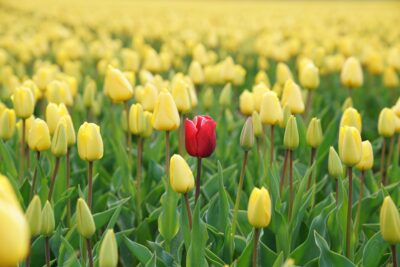 “We rarely come to anything like a masterly grip till the shadows begin to slant eastward, and for a season, which varies greatly with individuals, our powers increase as the shadows lengthen.” True to his teaching, Hall’s greatest creativity and achievement came after age 50.
“We rarely come to anything like a masterly grip till the shadows begin to slant eastward, and for a season, which varies greatly with individuals, our powers increase as the shadows lengthen.” True to his teaching, Hall’s greatest creativity and achievement came after age 50.
One of my defining moments arrived while reading Deathing by Anya Foos-Graber, an uncommon guide to creating a spiritually informed dying process. The composite protagonist, Selma, in preparing for a grace-filled departure from this life, shares an inner vision of seeing people on a half-built bridge, “spilling into the sea, drowning in their own ignorance because they had no bridge, no reality construct to cross from this shore to the Other Side, from one reality to another.”
As a voice instructs Selma to “Build them a bridge,” I realized with chills of recognition that my recurring childhood dream of a train on an unfinished track jutting out into space was Spirit dispatching my mission statement: Become a world-bridger, build the bridge between mainstream and metaphysical. I was initially shown my life purpose in a dream at age eight, and only completely understood this early message at 55! I reveled in awe and gratitude for this belated awareness — even though I’ve been living “on purpose” for years.
How can we awaken to the clarion call of who we are, whatever our chronological age? Freedman says that by midlife, life has become a run-on sentence in dire need of punctuation, and he proposes a metaphorical semicolon to capture the sense of renewal and redirection.
Becoming An Elder of Excellence
Anthropologist Mary Catherine Bateson, author of Composing a Lifeand Composing a Further Life, calls for establishing “a midlife atrium”: a sabbatical of sorts that functions as an opportunity to let in more light and air — which is precisely how Kathy Bates describes this shift in the film Fried Green Tomatoes. When her perplexed husband asks his quintessentially evolving wife, “What’s changed?” she muses, “Oh, the air and the light.”
Bateson writes, “The doorway to this new stage of life is not filing for Social Security but thinking differently and continuing to learn.”
We all have the choice to become “Elders of Excellence,” a Louise Hay euphonic. (Hay’s classic, You Can Heal Your Life served as a template during my awakening journey.) Even the word “elder” confers an essence of wisdom and respect that seems lacking when we append “ly”, transforming the vibrant, vintage noun into a frail, forgotten adjective.
Rabbi Zalman Schacter-Shalomi, author of the wise guide, From Age-ing to Sage-ing, says we become elders not by accruing years, but by harvesting our wisdom in service to others — future generations, yes, but also our peers who may be aging fearfully.
Elders, he writes, “have an ongoing responsibility for maintaining society’s well-being…They are pioneers in consciousness who transmit a legacy to future generations. Serving as mentors, they pass on the distilled essence of their life experience to others. The joy of passing on wisdom to younger people not only seeds the future, but crowns an elder’s life with worth and nobility.”
Wonder and Wisdom
Perspective shifts as we do. I learned this profoundly from my lifelong friend Ellie, who lived alone after her husband’s transition until she was nearly 96. At 72 she began writing letters to the editor of her local newspaper, expressing strong opinions about the salient issues of the day. Most of her letters were published, and in 2009 the paper ran a front-page profile lauding Ellie’s 22 years of chirographic activism.
When I interviewed her at age 92, Ellie shared how she was a surrogate mom to “lots of young people.” I was 48 at the time and wondered what she meant, since to me “young people” were in their teens and early twenties. I was amused by her reply: “In their fifties.” By the time you’re 92, fifty is young.
Ellie’s enduring gift has been the joy with which she greeted each morning, her gratitude for “being accepted” by Source for one more day, keen to give it her best and create a little more beauty in the world. The last time I saw her, she scampered down three flights of stairs (yes, at 95) and pressed her nose against the glass prior to opening the door to her apartment building, causing me to giggle.
“I hope you never lose your sense of wonder,” sang Lee Ann Womack, and she might have been channeling Ellie. Although my friend never learned to drive a car, she lived over the speed limit in every sense of the phrase. As elders-in-training, we can all embrace this teaching: when you get the choice to sit it out or dance, DANCE!
About the Author:
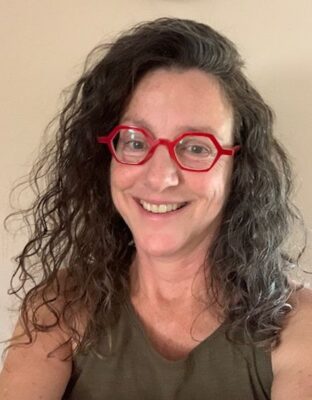
Ascension Lifestyle Managing Editor Amara Rose is a “midwife” for our global rebirth. She offers life crafting, e-courses, business alchemy and content creation to accelerate your evolutionary journey. Learn more at LiveYourLight.com, where you can subscribe to her resource-rich enewsletter, What Shines.


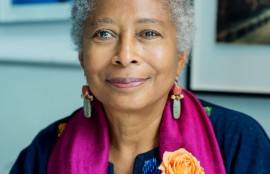



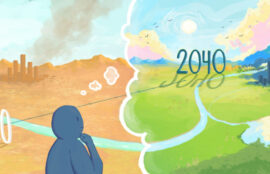
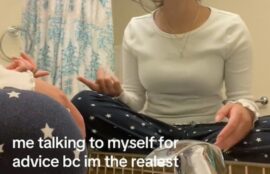

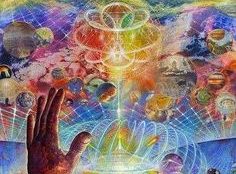







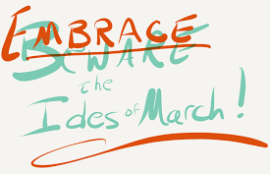


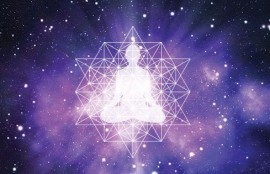
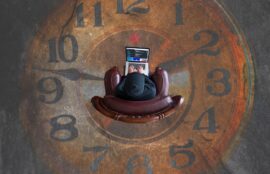
Sorry, the comment form is closed at this time.